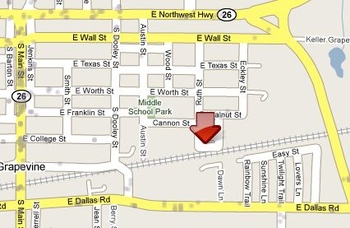 Get ready for the Internet of people, places, and things. Thanks to the iPhone and Android, it’s just around the corner — no pun intended.
Get ready for the Internet of people, places, and things. Thanks to the iPhone and Android, it’s just around the corner — no pun intended.
BusinessWeek reports that Kleiner Perkins Caufield & Byers, the venture capital firm behind the iPhone funding program iFund, have chosen two companies as its top picks to date — Whrrl from Pelago and Home Security 2.0 from iControl Networks.
Kleiner Perkins, a big fan of location-based services, has extended an offer to one other startup and are “seriously considering” 10 others, whatever that means.
 Whrrl combines the mapping capabilities of the iPhone with the ability to find information on your friends, where you’ve been, where anybody has been — in essence, connecting people, places, and things. Whrrl currently works on the BlackBerry Pearl and Curve.
Whrrl combines the mapping capabilities of the iPhone with the ability to find information on your friends, where you’ve been, where anybody has been — in essence, connecting people, places, and things. Whrrl currently works on the BlackBerry Pearl and Curve.
iControl’s application isn’t as sexy as Whrrl — it is home automation after all — but it gives users the ability to communicate to the places and things important in their lives, namely their homes or businesses and what’s in them like door locks, air conditioners, lights, and so on.
Add these programs to the applications being developed as part of the Android Developers Challenge (Bread Crumbz, LifeAware, Beetaun) and you can see a locations, locations, locations trend forming. In Wired lingo, it would be:
- plain old voice communications: “expired”
- mobile Internet surfing: “tired”
- using mobile devices to interact with people, places, and things: “wired”
“There’s going to be a ‘what’s going on around me right now’ button,” Kleiner Perkins partner Matt Murphy told BusinessWeek. “You’re always one button away from that immediate context.”
 Location-based services like Whrrl have been discussed for many years, but initially it was like: You walk by Starbucks, the store knows you are there, it sends you a $1 off coupon. Yawn.
Location-based services like Whrrl have been discussed for many years, but initially it was like: You walk by Starbucks, the store knows you are there, it sends you a $1 off coupon. Yawn.
Location-based services still are considered the next killer mobile app because technology such as GPS, mapping, geo tagging, and social networks are enabling new hardware, software, and user behavior, making Whrrl and another friend tracker, Loopt, possible.
For most people, location-based services are initially hard to understand. Why do I want people to know where I am at all times? Why do I care where my neighbor is?
But when applications like Whrrl and Loopt are a part of the iPhone, BlackBerry, and Android-powered Gphones like Google Maps are today, average users will begin to see the advantages and how they can use these services in their lives.
As BusinessWeek notes, “Say you’re lost in Las Vegas and need a restaurant recommendation. With iPhone in hand, you can scan the locations of nearby restaurants, just Italian restaurants, or just those recommended by foodie friends. Or you could search for the highest-rated bars or kid-friendly activities recommended by friends from your social network.”
“As more phones become GPS-enabled, more and more people are going to want these services,” Charlene Li, a noted analyst with Forrester Research, said to BusinessWeek. “People want information when and where they need it.”
 Obviously applications such as Whrrl, Loopt, Beetaun, and LifeAware are just a start. There’s a great deal of work to be done before people accept location-based services, especially when it comes to adding friends (yet another service to get everybody involved in) and privacy and security. Business models for these programs have yet to be worked out.
Obviously applications such as Whrrl, Loopt, Beetaun, and LifeAware are just a start. There’s a great deal of work to be done before people accept location-based services, especially when it comes to adding friends (yet another service to get everybody involved in) and privacy and security. Business models for these programs have yet to be worked out.
But over time, as the open social movement takes root and unites social networks like Facebook, MySpace, and Twitter and trust is established between everybody involved, people will feel more comfortable using a service like Whrrl. And in the meantime, it doesn’t hurt that it now has the Kleiner Perkins seal of approval.

Speaking of iPhone and location-based services, I wonder if Steve has tried Twitter-client Twinkle? It also let’s you take pics. Unfortunately, location is only visible to folks also running the app or on uploaded photo pages.
@ Dave Zatz
No I haven’t but… it looks very nice indeed.
This is yet more proof that the iPhone official SDK will deliver some exceptional third-party efforts, and far exceed other mobile platforms – for now at least.
Still cannot believe that iPhone does not provide a compelling API for developer to build map based application. Android, on the other end is very good at it. So Apple, when are you going to provide all developers with a map SDK?
Thanks for sharing these useful information! This is really interesting information for me.
– google mail